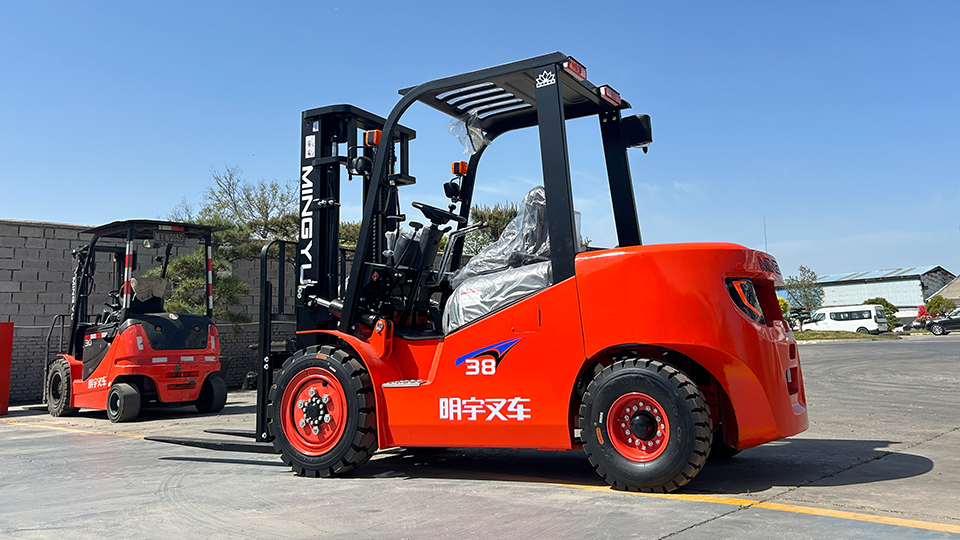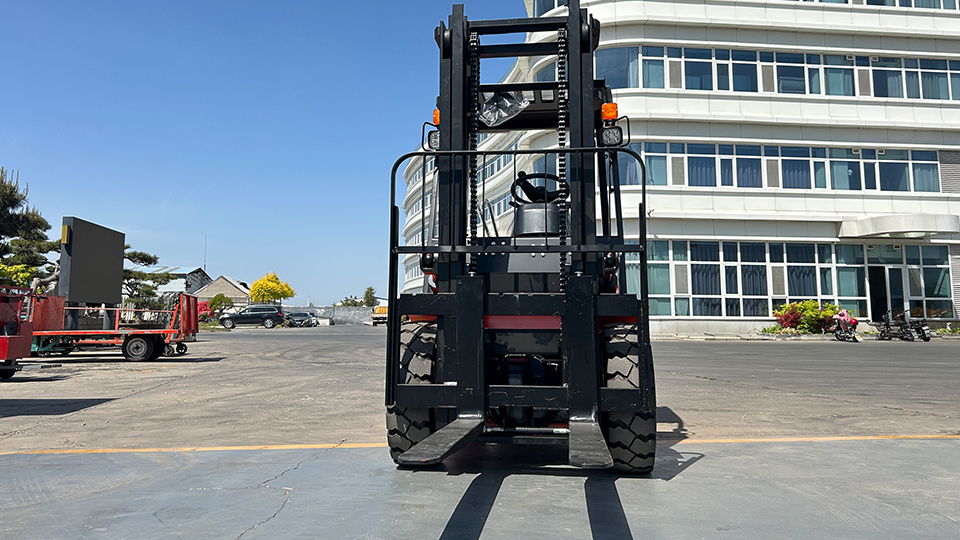
However, a closer examination of the standard reveals crucial implications for trainer qualifications. OSHA requires that training consist of a combination of formal instruction (e.g., lecture, video, written material), practical training (demonstrations and exercises), and evaluation of the operator's performance in the workplace. Furthermore, the standard emphasizes that training must be conducted by persons who have the knowledge, training, and experience to train operators and evaluate their competence.

Safe operating procedures and potential hazards: A comprehensive understanding of common causes of accidents, proper load handling techniques, pre-shift inspection protocols, and workplace-specific hazards is essential.
Effective training methodologies: The ability to convey information clearly, demonstrate skills effectively, and assess operator competence accurately is paramount.
Evaluation techniques: Trainers must be skilled in observing operator performance, identifying areas for improvement, and determining if an operator has achieved the required level of competency.
While OSHA doesn't mandate a specific "forklift trainer certification" from a third-party organization, the responsibility lies squarely with the employer to ensure that their chosen trainer possesses these necessary qualifications. This means the employer must have a system in place to verify and document the trainer's knowledge, training, and experience.
The Spectrum of Trainer Qualifications: From Internal Expertise to External Programs
In practice, the qualifications of forklift trainers can vary significantly. Some employers may designate experienced and knowledgeable employees within their organization to conduct training. These individuals may have years of hands-on experience operating forklifts and a strong understanding of workplace safety protocols. However, relying solely on internal experience may not always be sufficient to meet the demands of effective training.
This is where the value of external forklift trainer certification programs comes into play. While not legally mandated by OSHA, these programs offer a structured and standardized approach to developing qualified trainers. These programs are typically offered by:
Forklift manufacturers: Often provide training on their specific equipment models.
Safety consulting firms: Specialize in providing comprehensive safety training solutions.
Industry associations: Develop training programs tailored to specific industry needs.
These certification programs typically involve intensive training sessions covering topics such as:
OSHA regulations and relevant standards.
Principles of adult learning and effective training techniques.
Developing and delivering engaging training materials.
Conducting practical training exercises and evaluations.
Identifying and addressing common operator errors.
Understanding forklift stability, mechanics, and maintenance.
Workplace hazard identification and risk assessment.
Upon successful completion of such a program, the individual often receives a certificate demonstrating their competency as a forklift trainer. While this certificate doesn't absolve the employer of their responsibility to ensure the trainer is qualified for the specific workplace and equipment, it provides a strong indication that the trainer has met a recognized standard of knowledge and skills.
Benefits of Utilizing Certified Forklift Trainers
Employing trainers who have undergone formal certification programs offers several significant advantages for employers:
Enhanced Credibility and Expertise: A certification from a reputable organization lends credibility to the trainer and demonstrates a commitment to professional development. This can instill greater confidence in the trainees and the overall training program.
Standardized Training Delivery: Certified trainers are typically trained on consistent methodologies and best practices, leading to more standardized and effective training across different sessions and instructors.
Improved Regulatory Compliance: While not a direct requirement, utilizing a certified trainer can help employers demonstrate due diligence in meeting OSHA's implicit expectations for trainer qualifications. Certified trainers are likely to be well-versed in current regulations and industry standards.
Reduced Risk of Accidents and Injuries: Well-trained operators, guided by knowledgeable trainers, are less likely to be involved in accidents, leading to a safer work environment and reduced costs associated with injuries, equipment damage, and downtime.

Increased Efficiency and Productivity: Competent operators are more efficient and productive, contributing to smoother workflow and improved overall operational performance.
Reduced Liability: In the event of an accident, demonstrating that operators were trained by qualified individuals can help mitigate potential legal liabilities for the employer.
Access to Updated Information and Resources: Certification programs often provide ongoing access to updated information, training materials, and networking opportunities, ensuring trainers remain current with industry best practices.
Employer Responsibilities: Beyond Trainer Certification
While the focus has been on trainer qualifications, it's crucial to remember that the ultimate responsibility for ensuring safe forklift operation lies with the employer. Even if an employer utilizes certified trainers, they still have several key obligations under OSHA regulations:
Develop and Implement a Comprehensive Training Program: The training program must cover the specific types of forklifts used in the workplace, the hazards associated with their operation, and the safe operating procedures to be followed.
Conduct Workplace-Specific Training: General forklift training must be supplemented with training specific to the unique hazards and operating conditions of the employer's workplace.
Evaluate Operator Competence: Employers must evaluate each operator's performance in the workplace to ensure they have the skills and knowledge to operate the equipment safely. This evaluation must be documented.
Provide Refresher Training: Refresher training is required whenever an operator is observed operating a forklift unsafely, is involved in an accident or near-miss incident, or when workplace conditions change.
Maintain Training Records: Employers must maintain records of all operator training, including the identity of the trainer, the date of training, the content of the training, and the results of the evaluation.
Making Informed Decisions: Choosing and Qualifying Forklift Trainers
Given the regulatory landscape and the benefits of qualified trainers, employers should adopt a thoughtful approach to selecting and ensuring the competency of those responsible for forklift operator training. This may involve:
Internal Assessment: Carefully evaluate the knowledge, experience, and training skills of potential internal candidates. Provide them with opportunities for professional development, such as attending train-the-trainer programs.
External Hiring: When hiring trainers, prioritize candidates who possess relevant certifications and a proven track record of delivering effective forklift training.
Investing in Train-the-Trainer Programs: Regardless of whether the trainer is internal or external, consider investing in reputable train-the-trainer programs to equip them with the necessary pedagogical skills and in-depth knowledge.
Ongoing Evaluation of Trainer Effectiveness: Regularly assess the effectiveness of the training program and the trainer's performance through feedback from trainees, observation of operator behavior, and analysis of accident data.
Maintaining Trainer Competency: Provide trainers with ongoing opportunities to update their knowledge of regulations, equipment, and best practices through continuing education and professional development.
Conclusion: Competence Over Certification
In conclusion, while OSHA doesn't explicitly mandate a specific "forklift trainer certification," the regulatory emphasis on ensuring that training is conducted by individuals with the knowledge, training, and experience effectively necessitates a high level of competence for those who train forklift operators.
Formal forklift trainer certification programs offered by reputable organizations can provide a valuable framework for developing and validating this competence. Utilizing certified trainers offers numerous benefits, including enhanced credibility, standardized training delivery, improved regulatory compliance, and ultimately, a safer and more productive work environment.
However, it's crucial to remember that certification alone is not a guarantee of effective training. Employers must remain actively involved in developing comprehensive training programs, conducting workplace-specific training, evaluating operator competence, and ensuring ongoing trainer development. By prioritizing competence and investing in qualified trainers, employers can significantly mitigate the risks associated with forklift operation and cultivate a safety-conscious culture within their organizations. The true measure of a qualified forklift trainer lies not just in a certificate, but in their ability to impart the knowledge and skills necessary for operators to safely and efficiently navigate the complexities of powered industrial truck operation.
Name: selena
Mobile:+86-13176910558
Tel:+86-0535-2090977
Whatsapp:8613181602336
Email:vip@mingyuforklift.com
Add:Xiaqiu Town, Laizhou, Yantai City, Shandong Province, China